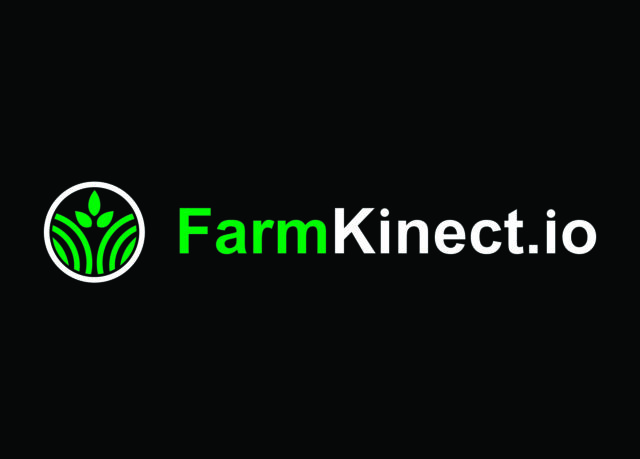This article was #23 in PDmag's Top 25 most-well read articles in 2010. Summary: After the news broke of the abuse video at Conklin dairy, Editor Walt Cooley focused on animal welfare in his Issue 11 2010 editorial. He challenged producers to adopt the National Dairy Farmers Assuring Responsible Management (FARM) program and to make animal well-being standards a priority.
Because this article was so popular, we asked the National Milk Producers Federation (the organization behind FARM) a follow-up question:
Q. How will the FARM program help producers reclaim animal well-being as their own issue?
A . Consumers want to purchase food from sources they know will take care of animals, and operate in a way that is consistent with their values and expectations. Dairy farmers have a longstanding commitment to doing what is right. The National Dairy FARM Program: Farmers Assuring Responsible Management provides consistency and uniformity to best practices in animal care and quality assurance in the dairy industry.
In order to reclaim this issue, we have to be action-oriented, not passive or defensive. By being pro-active through the National Dairy FARM Program rather than reactionary on animal welfare, the dairy industry has taken control of animal care issues for the rational majority who consume dairy products. No program will satisfy those who desire to end livestock production in the U.S., however a credible transparent program with third-party verification ensures the validity and the integrity of the program to our customers and consumers. The National Dairy FARM Program does just that.
—Jamie Jonker, Vice President, Scientific & Regulatory Affairs, National Milk Producers Federation
Click a link below to read other articles in the Top 25:
3 open minutes with Doug Maddox and Gary Genske: http://bit.ly/PDTop25_24
3 open minutes with David Martosko of HumaneWatch: http://bit.ly/PDTop25_25
ARTICLE
Where were you when you saw the undercover video filmed by an animal rights activist in Ohio?
In this issue, we have interviewed the owner of the dairy where the video was filmed – Gary Conklin . He talks about how he first learned of the video’s existence, what he did in the hours immediately after watching it and what he will do to pick up the pieces in the months ahead.
I watched the video several hours after news media began talking about it. I had first committed not to watch it, knowing what would be portrayed. When I did see it, I had the same sick-to-my-stomach feeling many others who watched it felt. I felt disgust for the featured employee in the video, who has now been charged with 12 counts of animal cruelty. I felt sorry for Gary. But I felt even more sorry for Gary in the days and weeks after the incident.
For weeks, Conklin was under investigation for any role in animal abuse, including short clips showing him striking an animal. When watching the video for the first time, I could tell those clips had been strategically placed to try to implicate him. It turns out the clips were taken out of context.
The prosecuting attorney in the case says that during the grand jury proceedings to indict Conklin, expert veterinarians testified to confirm that Conklin was attempting to get a down cow up for treatment. These same video frames, not recognized as out of context, caused many to turn against Conklin publicly. He was pronounced guilty before investigation.
I haven’t asked Gary who, besides his family, was most supportive to him during his turmoil as an accused animal abuser; now is not the right time. But I don’t think many of his industry colleagues were beside him. At least not publicly, where he needed it just as much as he needed it privately.
Instead, except for those who knew him better, publicly some called him a “bad apple,” “not one of the bunch.”
In the future, what will give the dairy industry confidence to stand by the next producer who is accused?
We should learn this: What happened to Conklin could happen anywhere in the U.S.
Think who would you turn to if the same incident had happened on your farm. Friends? Other dairymen? Your co-op? Your producer organization? Who would be willing to defend you publicly? Would you be treated differently than Conklin was?
This instance shows the importance of reclaiming animal welfare as the dairy industry’s issue. We must own responsibility for who will defend our best practices. Those practices have been defined through the National Dairy Animal Well-Being Initiative and adopted industry-wide in the National Dairy Farmers Assuring Responsible Management (FARM) program. However, complete implementation of this program at the farm level has been slow.
If the FARM program had been more fully implemented and Gary Conklin’s farm, or even at least his co-op, had participated in an audit verifying his farm’s animal welfare standards were in compliance, more in allied industry, and hopefully more producers, would have stood by him. They would have stood up for him because it meant standing up for themselves and acceptable animal welfare standards.
Mercy for Animals got smarter after their first video release in New York. They learned that targeting a co-op (Land O’Lakes) meant a dairyman would have more defense. In Conklin’s case, they isolated him from any support. And without a rescue line to nationally accepted animal well-being standards, he was left to himself.
There will be a next time. I just hope that when you’re watching the next video, it’s not about your dairy and that as an industry we’ve done the work necessary to feel confident in sticking up for each other. PD

-
Walt Cooley
- Editor-in-chief
- Progressive Dairyman
- Email Walt Cooley





